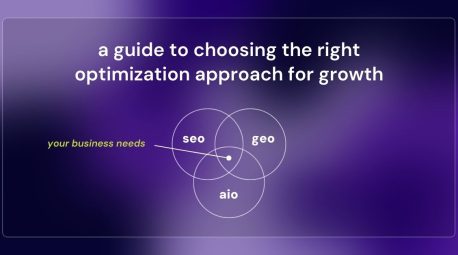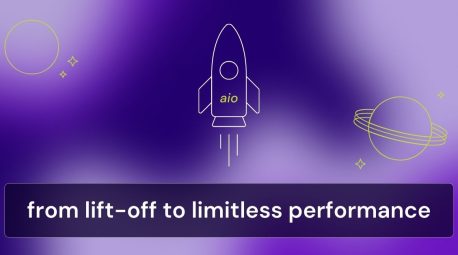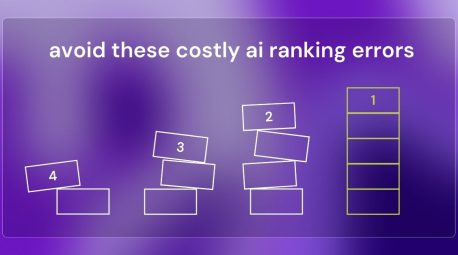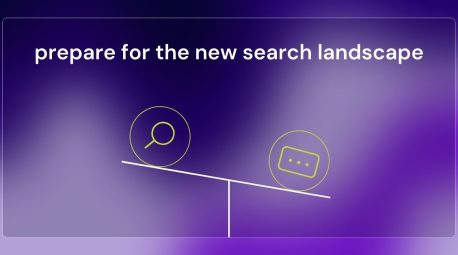SEO vs GEO vs AIO: Which One Does Your Business Really Need?

Search isn’t just about ranking on Google anymore, it’s about showing up inside AI-generated answers. Generative Engine Optimization (GEO) is the new frontier for prime real estate in a user’s journey, where structured data, entity optimization, and authoritative citations decide whether AI search tools choose you or your competitors.
Search is evolving — fast.
Five years ago, SEO was all about ranking on Google’s first page. Today, customers are just as likely to find you through an AI overview in Google, a direct answer from ChatGPT, or a recommendation in Perplexity. That shift has given rise to new optimization strategies like Generative Engine Optimization (GEO) and Artificial Intelligence Operations (AIO).
If you’re unsure how these fit together, you’re not alone. This guide breaks down each approach, when to use them, and how they work in harmony to keep your business visible in both traditional and AI-driven search.
What is SEO?
Search Engine Optimization (SEO) is the foundation of digital visibility.
It’s the process of improving your website and content so that traditional search engines like Google and Bing rank your pages higher for relevant keywords.
Key components include:
- Technical SEO – Site speed, mobile optimization, and structured data.
- On-Page SEO – Keyword placement, headings, meta tags, and internal linking.
- Content SEO – Creating relevant, authoritative content for your target audience.
- Off-Page SEO – Backlinks, citations, and brand mentions across the web.
Why it still matters:
Even with AI-driven search, traditional SEO remains the entry point for visibility. Without a strong SEO foundation, your content has a much harder time appearing in both search engine results pages (SERPs) and AI-powered summaries.
What is GEO?
Generative Engine Optimization (GEO) is the art of optimizing your brand for AI-powered search engines.
Think of it as SEO’s next evolution — instead of just ranking on a list of links, you’re aiming to be quoted, cited, or referenced inside AI-generated answers.
AI search platforms include:
- Google Gemini and AI Overviews
- ChatGPT with browsing
- Perplexity AI
- Anthropic Claude
- X’s Grok
Key GEO tactics:
- AI Visibility Audits – Identify where (and if) your brand appears in AI results.
- Entity Optimization – Ensure AI engines understand your brand’s data, facts, and expertise.
- Citation Building – Publish authoritative content AI engines are likely to reference.
- Multi-Format Content – Articles, Q&A sections, and schema markup tailored for AI consumption.
Why it matters:
In AI results, there’s no “second page.” If you’re not part of the answer, you’re invisible.
What is AIO?
Artificial Intelligence Operations (AIO) blends human creativity with AI-powered scalability. Instead of replacing people, AIO uses AI to assist, enhance, and accelerate your marketing and operations.
Examples of AIO in action:
- Human-Assisted Content Creation – Marketers craft strategy, AI handles first drafts or repurposing.
- AI-Driven Workflows – Automating content formatting, publishing, and distribution.
- Prompt Libraries – Pre-built prompts tailored for your industry and brand voice.
Why it matters:
AIO ensures your team can execute faster, produce more consistent output, and maintain quality while keeping humans in control.
Side-by-Side Comparison SEO VS GEO VS AIO
| Feature | SEO | GEO | AIO |
|---|---|---|---|
| Goal | Rank higher in traditional search results | Appear in AI-generated answers & overviews | Enhance workflows with AI-powered tools |
| Focus | Keywords, backlinks, site optimization | AI visibility, entity recognition, citations | Efficiency, content scaling, automation |
| Main Platforms | Google, Bing | Google AI Overviews, ChatGPT, Perplexity, Claude | Internal tools, marketing platforms |
| Metrics | Rankings, organic traffic | AI citations, visibility in AI answers | Time saved, content output, TOI |
| Timeframe | Medium to long-term | Emerging, fast-moving | Immediate to short-term gains |
When to Use Each Approach
- SEO – Always. It’s the foundation of all visibility efforts. Building a strong content structure and strategy builds topical authority for your brand and business.
- GEO – When your audience is already using AI tools to search, research, or compare options. In most cases, users who are using search engines aren’t even aware they are using AI overviews.
- AIO – When you want to boost productivity, scale campaigns, or maintain consistency without hiring more staff. AIO is more for internal operations like sales, customer services, workflow improvements, etc.
How They Work Together
The most successful brands don’t choose between SEO, GEO, and AIO — they combine them:
- Use SEO to establish a credible, optimized foundation and continuously refresh content and add new content.
- Layer in GEO to ensure AI engines see and cite you to improve visibility where your customers are researching your service or product.
- Deploy AIO to keep output high, workflows efficient, and campaigns adaptable.
Final Takeaway
Search isn’t a single channel anymore. It’s an ecosystem that now includes traditional search engines, AI-powered platforms, and AI-assisted operations behind the scenes.
If you’re still treating SEO like it’s 2018, you’re already behind.
If you’re ready to be found, be cited, and be enhanced, Sperling.ai can guide you every step of the way.
FAQs
- What is the main difference between SEO and GEO?
SEO focuses on ranking in traditional search engines like Google. GEO focuses on being referenced or cited inside AI-generated answers from platforms like ChatGPT or Perplexity. - Is GEO replacing SEO?
No. GEO builds on SEO. A strong SEO foundation makes it easier for AI engines to find, trust, and cite your content. - How does AIO fit into a marketing strategy?
AIO uses AI tools to improve efficiency and scalability — helping your team produce more, faster, without sacrificing quality. - Why is GEO important for business visibility?
In AI results, there’s no list of links. If your brand isn’t part of the answer, you don’t exist in that search. - Can a business start with GEO before SEO?
It’s possible but not ideal. Without SEO, your brand won’t have the content and credibility AI engines need to reference.



